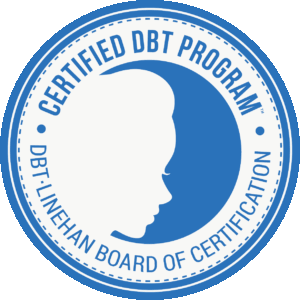In the quiet suburban town of Voorhees, NJ, nestled amidst the bustle of South Jersey, lies a valuable resource for those seeking to overcome past traumas and emotional wounds: Eye Movement Desensitization and Reprocessing (EMDR) therapy. This innovative therapeutic approach has garnered attention for its effectiveness in treating a variety of conditions, from PTSD and anxiety to depression and beyond. For residents of Voorhees and its neighboring communities, EMDR therapy offers a pathway towards healing that is both transformative and deeply healing.
Understanding EMDR Therapy

EMDR therapy is a structured approach that helps individuals process distressing memories and experiences. Developed by psychologist Dr. Francine Shapiro in the late 1980s, EMDR has since become widely recognized and endorsed by organizations such as the American Psychiatric Association and the World Health Organization. At its core, EMDR therapy aims to reprocess memories that have become stuck or frozen due to past trauma, allowing the brain to heal naturally.
EMDR therapy represents a significant advancement in the field of mental health treatment, offering hope and healing to individuals in Voorhees, NJ, and beyond. Through its innovative approach and evidence-based techniques, EMDR therapy empowers individuals to confront and overcome the lingering effects of trauma, paving the way towards a brighter and more resilient future.
How Does EMDR Work?
Central to EMDR therapy is the use of bilateral stimulation, which can involve eye movements, taps, or sounds. These are administered by a trained therapist to facilitate the brain’s natural ability to heal from psychological trauma. During sessions, clients focus on specific memories or distressing events while simultaneously experiencing bilateral stimulation. This process helps to desensitize the emotional intensity of memories and reprocess them in a more adaptive way.
Initial Assessment and Treatment Planning
Before commencing EMDR therapy, a trained therapist conducts a comprehensive assessment to understand the client’s history, current symptoms, and treatment goals. Together, they identify specific memories or experiences that are causing distress and determine which ones to target first.
Desensitization Phase
The core of EMDR therapy involves reprocessing distressing memories or traumatic incidents that have become stuck or frozen in the brain’s neural networks. During sessions, the therapist guides the client to recall the targeted memory while simultaneously engaging in bilateral stimulation. This can include following the therapist’s hand movements with their eyes, listening to alternating sounds, or feeling gentle taps on their hands.
Bilateral Stimulation
Bilateral stimulation is a key component of EMDR therapy. It is believed to activate the brain’s information processing system, facilitating the integration of fragmented memories and emotions. This process helps to unlock the memory network and allow for adaptive resolution.
Processing and Integration
As the client focuses on the targeted memory and experiences bilateral stimulation, they may notice various thoughts, emotions, sensations, or insights emerging. The therapist supports this process without directing the content, allowing the client’s own mind to make connections and reframe the memory in a more adaptive way.
Installation Phase
Once the distressing memory has been reprocessed and the associated negative emotions have significantly decreased, the therapist helps the client to strengthen positive beliefs and insights that have emerged during the session. This phase aims to solidify the client’s newfound perspective and enhance their sense of self-worth and resilience.
Finding EMDR Therapy Resources in Voorhees
For residents of Voorhees and the surrounding areas, accessing EMDR therapy is facilitated by a network of skilled therapists and support groups. Local mental health providers, clinics, and private practices often offer EMDR as part of their therapeutic services. These professionals are trained to guide clients through the EMDR process, providing a safe and supportive environment for healing.
Finding EMDR therapy resources in Voorhees, NJ, involves exploring local providers, seeking recommendations, and connecting with supportive communities. By taking proactive steps to research therapists, schedule consultations, and consider financial considerations, you can embark on a journey of healing and growth through EMDR therapy. Remember, the right therapist and supportive environment can make a significant difference in your therapeutic experience and overall well-being.
Support Groups and Additional Resources
In addition to individual therapy sessions, support groups can be invaluable for those undergoing EMDR therapy. These groups provide a sense of community and understanding among individuals who are navigating similar challenges. They offer a space for sharing experiences, insights, and encouragement, enhancing the therapeutic journey.
Local Mental Health Providers: Therapists and clinics offering EMDR therapy often organize or recommend support groups for their clients. Inquire with your therapist or treatment provider about group therapy options available in the community.
Community Mental Health Centers: Organizations such as community mental health centers or hospitals may host support groups for trauma survivors and individuals undergoing EMDR therapy. Contact them directly to inquire about group availability and schedules.
Online Resources: Websites and online platforms dedicated to mental health and trauma recovery may list virtual support groups or forums where individuals can connect with peers facing similar challenges. These online communities can provide support and resources regardless of geographic location.
Local Support Group Directories: Some organizations maintain directories or listings of support groups in specific geographic areas. These directories can be accessed online or through community resource centers.
Benefits of EMDR Therapy
The benefits of EMDR therapy extend beyond symptom relief; many individuals report profound improvements in their overall well-being and quality of life. By addressing underlying trauma and negative beliefs, EMDR therapy can foster resilience, improve self-esteem, and promote healthier relationships. Moreover, it empowers individuals to regain a sense of control over their lives and move forward with renewed strength and clarity.
Effective Treatment for Trauma
EMDR therapy is particularly renowned for its efficacy in treating trauma-related disorders, such as post-traumatic stress disorder (PTSD). By targeting distressing memories and associated symptoms, EMDR helps individuals process traumatic experiences and reduce their emotional impact. This can lead to significant relief from symptoms like flashbacks, nightmares, and hypervigilance.
Reduced Anxiety and Depression
Many individuals with anxiety disorders and depression find relief through EMDR therapy. By addressing the root causes of these conditions, such as negative beliefs and unresolved past experiences, EMDR helps to alleviate symptoms of anxiety and depression. Clients often report improved mood, reduced feelings of hopelessness, and enhanced emotional resilience.
Improved Self-Esteem and Self-Efficacy
EMDR therapy focuses not only on healing past traumas but also on strengthening positive beliefs about oneself. Through the reprocessing of negative memories and experiences, individuals can develop a more positive self-concept and enhanced self-esteem. This shift in perception fosters greater self-confidence and a renewed sense of self-worth.
Enhanced Emotional Regulation
Many clients experience improvements in their ability to regulate emotions after undergoing EMDR therapy. By resolving trauma and processing difficult emotions associated with past experiences, individuals learn healthier coping mechanisms and gain greater emotional resilience. This can lead to more stable mood states and reduced emotional reactivity in daily life.
Behavioral Changes and Coping Skills
EMDR therapy equips individuals with effective coping skills and adaptive behaviors to manage stressors and triggers. As negative beliefs are reprocessed and replaced with more positive and realistic ones, clients often find themselves responding to challenges in healthier ways. This can lead to improvements in relationships, work performance, and overall quality of life.
Conclusion
EMDR therapy offers a powerful pathway towards healing for individuals coping with trauma and related issues. By harnessing the brain’s natural ability to process and heal from distressing memories, EMDR provides a structured approach that has shown remarkable effectiveness. Whether you’re seeking resources to understand EMDR therapy better or looking to join a supportive community through local support groups, the journey towards healing begins with information and support.
For more information on EMDR therapy, available resources, or to inquire about our services at DBT of South Jersey in Voorhees, NJ, please feel free to contact us at 1-856-625-6550. Our team is dedicated to providing compassionate care and guiding you towards the resources that best suit your needs. Take the first step towards healing today.



